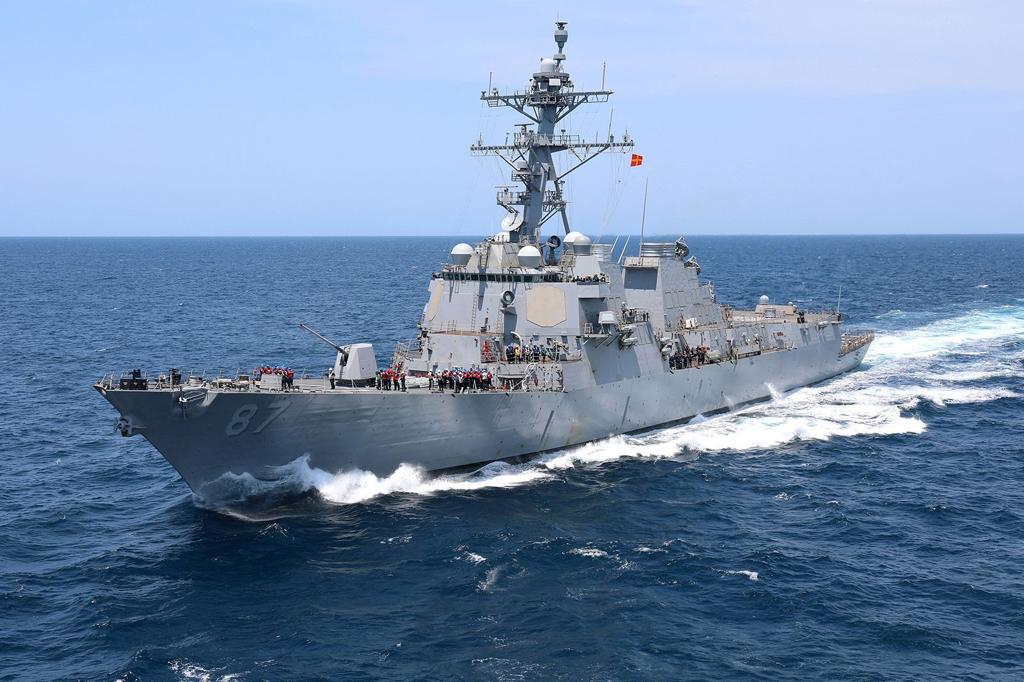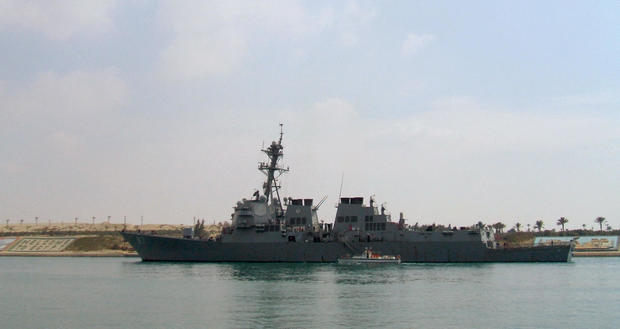Two Ballistic Missiles Fired At US Warship In Gulf Of Aden
In a concerning incident, two ballistic missiles fired at US warship in Gulf of Aden from Houthi rebel-controlled Yemen.
Author:Hajra ShannonReviewer:Paula M. GrahamNov 28, 2023274 Shares54.7K Views

In a concerning incident, two ballistic missiles fired at US warship in Gulf of Adenfrom Houthi rebel-controlled Yemen.
The incident started after the US Navy responded to a distress call from the armed people who had taken control of the commercial tanker Central Park.
The tanker, loaded with phosphoric acid, reported being under attack from an unidentified entity.
USS Mason Responds
The USS Mason, an Arleigh-Burke class destroyer part of the Eisenhower Carrier Strike Group, promptly responded to the distress call from Central Park.
Upon arrival, coalition elements demanded the release of the vessel. Subsequently, five armed individuals disembarked from the ship, attempting to flee in a small boat.
The USS Mason pursued the attackers, leading to their eventual surrender.
During the USS Mason's response to the distress call, two ballistic missiles were fired from Houthi-controlled areas in Yemen toward the USS Mason.
Fortunately, the missiles landed about 11 miles from the ship in the Gulf of Aden, causing no injuries or damage.
The Central Park, sailing under the Liberian flag and managed by Zodiac Maritime, had an international crew of 22.
Despite the tense situation, the ship's crew was reported safe. Zodiac Maritime has faced previous incidents, notably a drone attack in 2021 on its oil tanker Mercer Street off the coast of Oman, attributed to Iran.
Iran-backed Houthi
In Yemen, a Shia political and military group known as the Houthis have been engaged in a civil war since 2015, pitting themselves against an alliance supported by Saudi Arabia.
They have taken a stand in solidarity with the Palestinians and coordinated demonstrations across Yemen in response to Israel's invasion of Gaza.
Fears persist in the area that the Israel-Hamas conflict might escalate, and this comes after many strikes on US targets in the region and Israel by Houthi forces supported by Iran after the October 7th Hamas attacks.

Yemeni Government Condemnation
While Houthi rebels, who have controlled the Yemeni capital, Sanaa, since 2014, remained silent on the seizure, Yemen's internationally recognized government in Aden blamed the rebels for the attack.
They denounced it as an act of maritime piracy perpetrated by Houthi militias with alleged support from the Iranian regime.
Escalating Tensions In The Region
The incident adds to escalating tensions in the region, with other recent attacks targeting ships linked to Israel.
An Israeli billionaire's container ship, CMA CGM Symi, reportedly came under attack in the Indian Ocean from a supposedly Iranian drone.
The ships involved had also deactivated their Automatic Identification System (AIS) trackers in response to perceived threats.
With the Israel-Hamas conflict as a backdrop, concerns persist about the widening of regional conflicts. The US has intercepted multiple attacks from Houthi forces in recent weeks.
While tensions are high, the Pentagon maintains that the conflict has not yet spread regionally, emphasizing efforts to prevent further escalation.
Final Words
The recent incident involving the firing of ballistic missiles from Houthi-controlled Yemen toward a US warship highlights escalating tensions in the region.
The US Navy's response to a distress call from the seized tanker Central Park prevented damage or injuries from the missile launch. The episode underscores concerns about the Israel-Hamas conflict expanding into a broader regional crisis.
With maritime security in focus, international efforts are crucial to prevent further destabilization in the area.
Ongoing assessments by the Pentagon suggest a contained conflict, but heightened vigilance is maintained amid potential threats from Iranian-backed groups.

Hajra Shannon
Author

Paula M. Graham
Reviewer
Latest Articles
Popular Articles